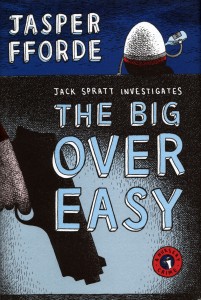 |
| Buy from the Book Depository |
Author: Jane Austen
Publisher: Penguin Classics
Paperback: 507 pages
Summary: (taken from Goodreads)
Taken from the poverty of her parents' home, Fanny Price is brought up with her rich cousins at Mansfield Park, acutely aware of her humble rank and with only her cousin Edmund as an ally. When Fanny's uncle is absent in Antigua, Mary Crawford and her brother Henry arrive in the neighbourhood, bringing with them London glamour and a reckless taste for flirtation. As her female cousins vie for Henry's attention, and even Edmund falls for Mary's dazzling charms, only Fanny remains doubtful about the Crawfords' influence and finds herself more isolated than ever. A subtle examination of social position and moral integrity, Mansfield Park is one of Jane Austen's most profound works.Overall Rating: 4 out of 5
Mansfield Park was slow going for me, but I finally got through it! Austen takes awhile to set everything up, and I was frequently frustrated by characters and events in the first half, but the last half of the book makes everything worth it. The characters in this book are fantastic; I love the way Austen is able to contrast them so nicely with each other. Mrs. Norris was probably one of my favorite characters of all time -- very similar to Mrs. Bennett, except more mean-spirited. Her ridiculousness frequently made me laugh out loud (and also enraged me on Fanny's behalf).
Despite that, Fanny Price isn't one of my favorite Austen characters. I get that she's lovely, sweet, and virtuous and all that, and that's great, but sometimes I really wished she would just stand up for herself. She got a lot better at the end when we were finally able to see some determination from her, but I was frustrated with her throughout most of the beginning. But we do see a lot of character development from her, and I love that. My favorite part is when she starts showing her family members just how strong she can be (so fantastic!), and the effect would not have been the same if she hadn't been as timid in the beginning, so I get the need for that. Still didn't make it any less frustrating though.
I enjoyed the last half of the book so much more than I enjoyed the first half. It was slow going, but everything started coming together and I really started to recognize the message Austen was trying to get across with these people who pride themselves on being so great and noble, yet who have no moral integrity whatsoever. I don't think Mansfield Park is nearly as entertaining as Pride and Prejudice, but I do think that it contains a more scathing commentary on morals and high society. And once that starts coming through, the novel becomes so much more interesting.
I'm a huge Austen fan and will always recommend her books to everyone, so read Mansfield Park! But really, this one's worth a read. It tackles corruption, adultery, and even slavery, so for those who like to dive into a book and study the larger issues that surround it, this is great for you! It's also an entertaining story about a girl who comes into her own, so for those who just like to be entertained, Mansfield Park works for you too.




